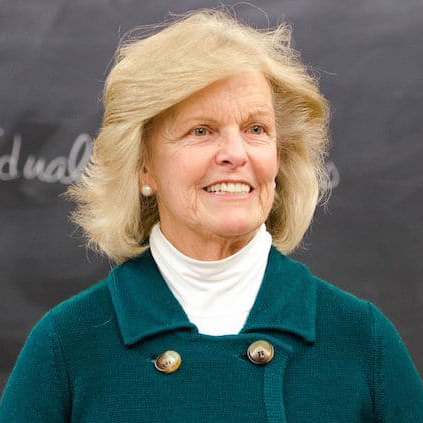Declaring that the devil has departed from the Church of England’s baptism service, the Guardian reported on June 20 that “a simplified baptism which omits mention of the devil” is now favored by the clergy who have test-marketed it throughout the United Kingdom. Claiming that the traditional rejection of the devil and all rebellion against God “put off people who are offended to be addressed as sinners,” clergy claimed that they found it much easier to ask parents and godparents to make vows that do not mention Satan.
Responding to a population “which sees no pressing reason to spend Sunday mornings or any other time in Church,” the Guardian reports, the new and improved baptism service also deletes the instruction to the godparents that the child will keep God’s commandments, and learn what a Christian “ought to know and believe to his soul’s health”—promising only that the church “shall do all that we can to ensure that there is a welcoming place for you. We will play our part in helping you guide these children along the way of faith.”
The proposal to delete the devil from the ritual received initial approval by the House of Bishops and will be debated by the Anglican General Synod in York this July. If approved, these changes may reveal that the Church of England is losing its sense of sin—and its need for salvation. More than 60 years ago, T.S. Eliot wrote about the sense of alienation that occurred when social regulators—like the church—began to splinter and the controlling moral authority of a society is no longer effective. He suggested that a “sense of sin” was beginning to disappear. In his play “The Cocktail Party,” a troubled young woman confides in her psychiatrist that she feels “sinful” because of her relationship with a married man. She is distressed not so much by the illicit relationship, but rather, by the strange sense of sin. Eliot writes that “having a sense of sin seems abnormal, she believed that she had become ill.”
Orthodox. Faithful. Free.
Sign up to get Crisis articles delivered to your inbox daily
Writing in 1950, Eliot knew that the language of sin was declining even then. Yet most of us would assume that the concept of sin was still strong because the churches—like the Church of England—seemed so strong. Looking back, though, it seems that the sense of sin was already beginning to be replaced by an emerging therapeutic culture. Within a growing culture of liberation, people no longer viewed themselves as sinful when they drank too much, took drugs, or engaged in violent or abusive behaviors. Rather, such actions were increasingly viewed as indicators that such individuals were victims of an illness they had little control over.
Sociologist Philip Rieff warned in his now-classic book of the 1960s, The Triumph of the Therapeutic, that “psychological man was beginning to replace Christian man” as the dominant character type in our society. Unlike traditional Christianity, which made moral demands on believers, the secular world of “psychological man” rejects both the idea of sin and the need for salvation.” The transformation is now complete in the Church of England.
Satan has been called an “evil genius” because he has been able to convince so many that he does not exist. In his satirical Screwtape Letters, C.S. Lewis creates a senior demon named Screwtape who is instructing Wormwood, his young protege, on how best to capture a soul for hell. He tells him that the most effective thing he can do to bring souls to hell is to convince people that Satan does not even exist. “The fact that devils are predominantly comic figures in the modern imagination will help you. If any faint suspicion of your existence begins to arise in his mind, suggest to him a picture of something in red tights, and persuade him that since he cannot believe in that, he therefore cannot believe in you.”
Unlike the Church of England, which is helping people move away from thoughts of the devil, Pope Francis has spoken often of Satan as the “prince of this world,” and the “father of lies.” He cautioned in his book On Heaven and Earth that, “Satan’s fruits are destruction, division, hatred and calumny.” In response, the faithful are beginning to flock to a shepherd that reminds them that it is the “work of the devil” to ignore the plight of the poor and to reject the humanity of all persons—including the weakest and least powerful.
One wonders why the Church of England will even bother to perform baptismal ceremonies at all when the real purpose of such a service has been lost. Rituals are important, though, as author, P.D. James writes in her chilling novel Children of Man. Set in a dystopian world in the year 2021 in which the entire human race has become infertile, the author describes a society in which the last child had been born two decades earlier, and where the “new trend” in cities such as London is to hold elaborate christening ceremonies for kittens—replete with flowing white christening dresses and lace bonnets for the feline newborns. In such a society, the clergy is pleased to preside over the ritual because it gives so much joy to the childless “parents” of the kittens.
The Church of England’s revised baptismal ritual will be voted upon next month in Kent at their General Synod. It will likely pass because it has been driven by a powerful division within the clergy, which is determined to demonstrate that the Church of England is a progressive church that no longer needs to recognize the need to renounce Satan in order to live in the freedom of the children of God.
Editor’s note: This column first appeared June 25, 2014 in the Washington Times and is reprinted with permission of the author. Pictured above is Queen Elizabeth II held by her mother on the day of her christening in 1926. (Photo credit: Pa)
